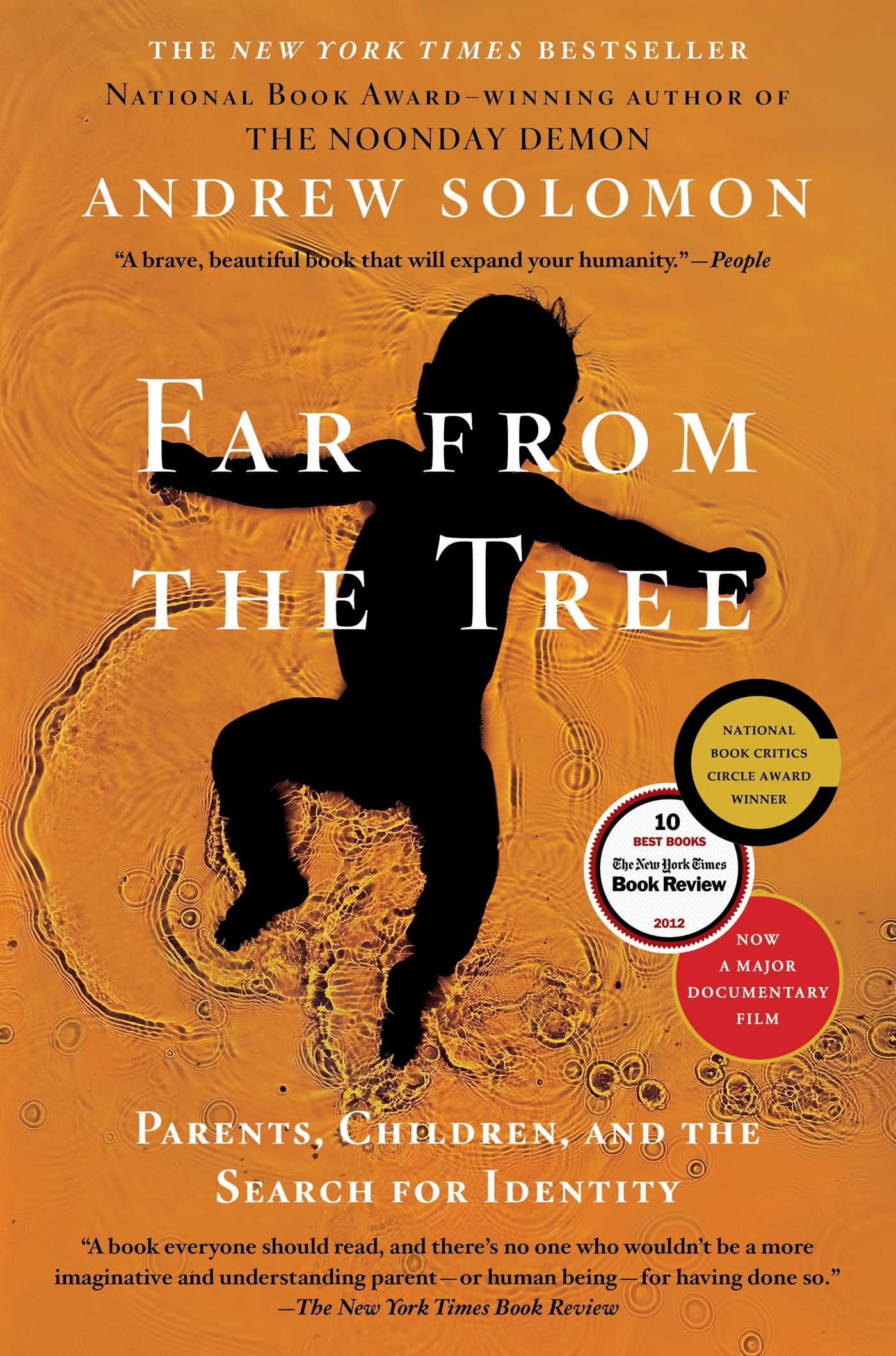By: Andrew Solomon (New York: Scribner, 2012)

Summary:
Tolstoy famously began Anna Karenina by saying, “All happy families are alike; each unhappy family is unhappy in its own way.” Modeled after this, Andrew Solomon states in his tome Far from the Tree, “the unhappy families who reject their variant children have much in common, while the happy ones who strive to accept them are happy in a multitude of ways.” Far from the Tree states that all people have two forms of identity: vertical and horizontal. Vertical identities are traits shared with parents, such as language, race/ethnicity, and religion. Horizontal identities, however, can be recessive genes, mutations, or “values and preferences that a child does not share with his progenitors,” such as homosexuality or being deaf or schizophrenic. Culture most often accepts the vertical as an identity but rather opts to cure or change the horizontal one. The thesis of the book is that we can benefit from a conversation about the division we place between illness and identity, and that one solution to debates surrounding child development and nature vs. nurture is to shift from an identity/illness division to lines blurred with love.
Andrew Solomon won the National Book Award for his book on depression, The Noonday Demon, and for Far from the Tree he spent 10 years interviewing over 300 families to work 40,000 pages of transcripts into a 962-page book. If that seems too much for you, consider watching/showing this TED talk from the author as an alternative to a book discussion.
Themes, Structure, & Genre:
- Difference. Solomon says that difference (or diversity) unites but never gets specific about the point at which there can be too much of it.
- Structure. The book is an anthology of twelve essays (or chapters): Son, Deaf, Dwarfs, Down Syndrome, Autism, Schizophrenia, Disability, Prodigies, Rape, Crime, Transgender, and Father.
- Genre. The book crosses into multiple genres: investigative journalism, memoir, science writing, novel, and even sociology.
- Parental love. Many parents might love a child without accepting him or her; Solomon urges parents to love and accept rather than try to fix.
Discussion Questions:
- How do groups like the “neurodiversity” campaign Mad Pride fit into Solomon’s paradigms?
- Does Solomon balance being prescriptive and descriptive, or does he side with one over the other?
- Why does Solomon assert on the first page that “[t]here is no such thing as reproduction”?
- Which chapter did you find most interesting, challenging, or arresting?
- Nathan Heller of The New Yorker wrote, “in [the book’s] weakest moments, when the pieces don’t quite line up, Solomon defaults to something that resembles cheerleading.” Would you agree?
- How does Solomon’s epigraph from Wallace Stevens’s “The Poems of Our Climate” relate to the book?
The imperfect is our paradise.
Note that, in this bitterness, delight,
Since the imperfect is so hot in us,
Lies in flawed words and stubborn words.
—
Drew Trotter